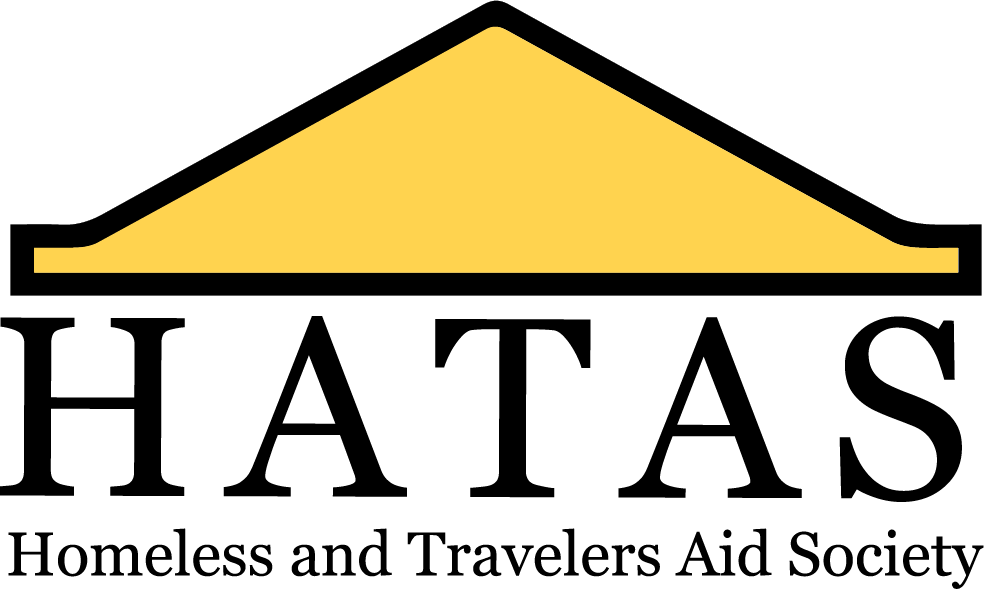The HATAS Continuum of Care
We take pride in our ability to identify the best ways to help clients.
The continuum of care at HATAS is a series of stages that our clients move through to gain stability within their lives and to leave homelessness behind them. At the beginning of the continuum are short-term relief programs designed to help people who are in need right now.
As clients progress through the stages of the continuum, the programs provide longer-term solutions. Supportive housing is one of these solutions.
While the continuum of care is a standardized and widely accepted approach to combating, reducing, and preventing homelessness, ultimately, HATAS is focused on the individual and what they need. The continuum of care provides an effective blueprint we use to ensure that every person who comes through our doors gets the assistance they deserve.
Some may skip stages along the continuum, while others may need a more intensive, detail-oriented approach. It is this personal touch and client-centric approach that sets HATAS apart and makes us a leader within the community.
24-Hour Homeless Emergency Services (Homeless Hotline)
HATAS serves as the central intake, assessment, and referral point for homeless residents needing shelter after-hours. Last year, over 8,500 households contacted the HATAS Homeless Hotline seeking services. When NYS hit the COVID pause button our hotline team hit the accelerator. The hotline partners with area homeless shelters, police departments, hospitals, libraries, CDTA and numerous others.
Code Blue
Code Blue is an outreach, transportation and shelter protocol to engage, transport, and shelter homeless people who might otherwise remain unsheltered during periods of extreme winter weather. Our goal is to prevent people from experiencing threats to life and health from exposure to severe winter weather. HATAS Homeless Hotline team members coordinate the Code Blue effort within Albany County. Last year 300+ of Code Blue clients were assisted.
Community Transition Team
The Community Transition Team assists individuals living with mental illness in navigating Albany County support systems. We help patients at the Capital District Psychiatric Center transition to community life securing supportive housing, mental health treatment, primary care, disability benefits, and employment. In 2023 the CTT group assisted 198 mentally ill persons. This is a 54% increase over the prior year.
Coordinated Entry
Coordinated entry is a critical component of the system-wide effort to prevent, reduce, and combat homelessness. It ensures that all people experiencing a housing crisis have uniform access to housing assistance and support. The program operates on a “no wrong door” philosophy, meaning that people in crisis can apply for housing from multiple access points. In 2023, Coordinated Entry served more than 1,200 individuals, 13% of whom were chronically homeless. The Coordinated Entry family of partners includes 12 homeless shelters and over 20 housing providers.
Rapid Rehousing
Rapid Rehousing helps to establish or re-establish a supportive housing environment for our clients within the community. The program connects single disabled adults experiencing homelessness to permanent housing. We help those living on the streets or in shelters solve the practical and immediate challenges to obtaining permanent housing while reducing the time they experience homelessness. Last year 26 persons were awarded a HATAS Rapid Rehousing unit.
Permanent Supportive Housing
Permanent housing offers a meaningful and lasting solution to end to homelessness. This is especially true during COVID because housing equals healthcare. A home of your own means that you can practice social distancing and good hygiene. PSH connects homeless households with a disability a stable place to call home. The program includes wraparound supportive services. The program has been proven to increase housing stability, improve healthcare and increase self-sufficiency for the most vulnerable households. Individually tailored and flexible support services are designed around each consumer’s unique needs. HATAS currently serves over 100 mentally ill households, on average.
Stay in touch.
Subscribe to our newsletter to hear from HATAS.



